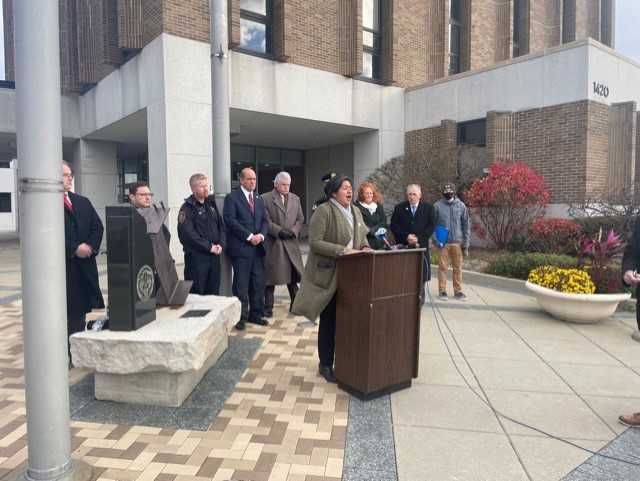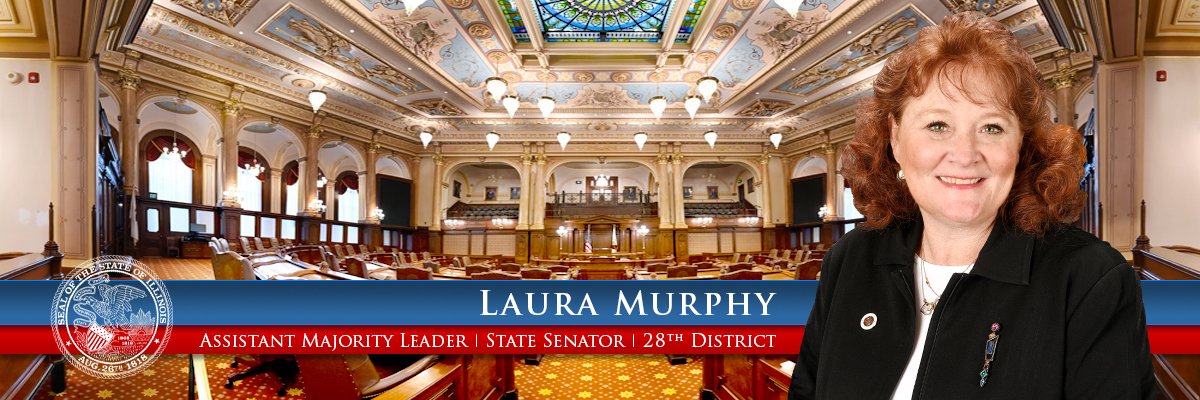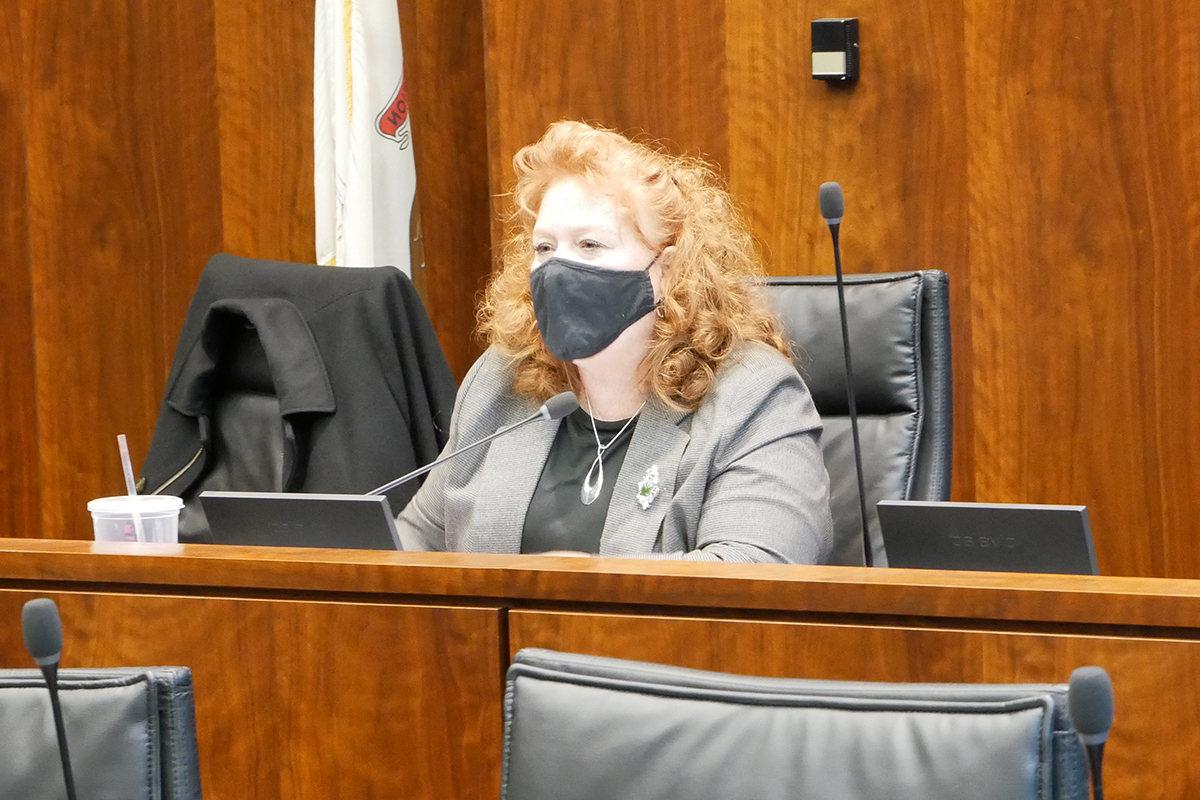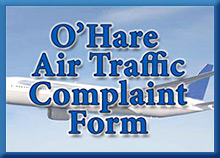Murphy on shakeup at Illinois Tollway: What signal are we sending to consumers of the tollway?
- Details
CHICAGO – Concerned about the ethics and transparency of recent moves made by top leaders of the Illinois Tollway, State Senator Laura Murphy (D-Des Plaines) called a hearing Tuesday to push for answers regarding the sudden change in the quasi-governmental agency’s chain of command.
“We must ensure that we are providing the most transparent process by effectively and efficiently operating the tollway,” Murphy said. “This is significant to the consumers of the tollway.”
The hearing comes just weeks after the Illinois Tollway board voted to restructure the Tollway’s executive staff. The move gave the part-time board chair – Will Evans – additional, direct oversight of some agency departments that had previously fallen under the Tollway’s executive director.
In the days following the October vote – which was conducted in just over a minute – many board members began to question the magnitude of their vote.
During Tuesday’s Senate Transportation Subject Matter Hearing, Murphy asked Evans questions to get to the bottom of the lack of transparency in the change and push for responsible stewardship of tax dollars spent at the agency.
Following nearly two hours of questioning, Murphy was left disappointed in the lack of clarity the committee received for Evans.
“If the very people who work for the Tollway and voted for the change are confused, what signal is that sending to the millions of consumers of the Tollway and its taxpayers?” Murphy said. “The Illinois Tollway receives hundreds of millions of dollars each year – people deserve to know their money is being spent in an efficient and appropriate way. I expected more from Mr. Evans.”
Murphy will continue to work with her Senate colleagues to establish a plan that outlines clear lines of communication at the Tollway.
Murphy: Free assessed value workshop now online
- Details
DES PLAINES – State Senator Laura Murphy (D-Des Plaines) held a virtual webinar to help local residents better understand how their assessed values are determined and to have their property tax questions answered.

“When people are struggling to understand the reason behind their home assessments or property taxes, they should know there are people ready to help,” Murphy said. “Cook County Assessor Fritz Kaegi is one of those people, and I thank him and his staff for providing invaluable information during the webinar.”
The free event, which brought in more than a dozen participants, was broadcast live online, but people who missed it or may have forgotten to jot certain information down can access a recording. Residents can view the video by visiting https://bit.ly/3HsvpoK and using the password 6P&@z*Jn.
Murphy was joined by Kaegi and his staff to teach residents more about how their assessed values are determined, what goes into determining the assessed value, and how that factors into their property tax bill. Residents were also able to ask questions, and the group discussed topics that included what the multiplier is and why it’s necessary, as well as why taxes increase even during periods of downturn in the real estate market.
“We want the determination of assessed value and property taxes to be an easy-to-understand and transparent process,” Murphy said. “I am hopeful residents were able to learn something new or get clarification during Tuesday’s event.”
People who still have questions can contact Murphy’s office at 847-718-1110.
Murphy collecting holiday cards to uplift residents of local long-term care facilities
- Details
 DES PLAINES – To help older adults stay connected with their community and spread cheer safely this holiday season, State Senator Laura Murphy (D-Des Plaines) is collecting holiday cards for residents at local long-term care facilities.
DES PLAINES – To help older adults stay connected with their community and spread cheer safely this holiday season, State Senator Laura Murphy (D-Des Plaines) is collecting holiday cards for residents at local long-term care facilities.
“A handwritten note or card is a great way to help those living at long-term care facilities get into the holiday spirit,” said Murphy. ”Last year, we collected over 1,000 cards that were distributed to seniors in local long-term care facilities, so we are grateful to be back by popular demand.”
Murphy is encouraging residents of the Northwest Suburbs to write cards, which can be homemade or store-bought, to help bring joy to older adults who may be feeling lonely or isolated during the holidays. Children are also encouraged to participate.
“It only takes a few minutes, but a heartfelt holiday greeting can make all the difference to someone who may be struggling during this challenging time,” said Murphy. “Your kind words could bring a smile to a neighbor’s face.”
Cards can be delivered to Murphy’s office through Friday, Dec. 17:
State Senator Laura Murphy
880 Lee St. Suite 100
Des Plaines, IL 60016
Cards can be dropped through the mail slot. For more information, contact Murphy’s office at 847-718-1110.
Murphy outlines legislation to end violence against law enforcement
- Details
DES PLAINES – As violence against law enforcement officers increases, State Senator Laura Murphy (D-Des Plaines) joined police chiefs and other public officials to call for change.
 “There is a national trend of increased violence against law enforcement officers,” Murphy said. “The very people who put their lives on the line daily to protect us deserve to be protected.”
“There is a national trend of increased violence against law enforcement officers,” Murphy said. “The very people who put their lives on the line daily to protect us deserve to be protected.”
Murphy was joined by State Representative Marty Moylan (D-Des Plaines), Senator John Conner (D-Lockport) and other representatives and public officials Thursday to outline proposed legislation designed to help protect law enforcement personnel.
House Bill 4159, which Murphy hopes to lead through the Senate, would create the Police Protection Act to increase penalties for assault and harassment offenses against members of law enforcement. Under the measure assaults harassment and “officer targeting” would be a classified as Class 3 felony.
Further, state’s attorneys from each county would be required to submit an annual report that outlines the number of offenses in which a law enforcement officer was a victim, the charges filed and the ultimate disposition of each case.
The proposed legislative package follows recent statistics reported to the FBI citing that over 60,000 law enforcement officers were injured in the line of duty in 2020 alone.
“We must work to restore respect of law enforcement personnel in our communities in efforts to keep our communities safe,” Murphy said. “That starts by building mutual trust between our officers and the community.”
More Articles …
Page 38 of 137










